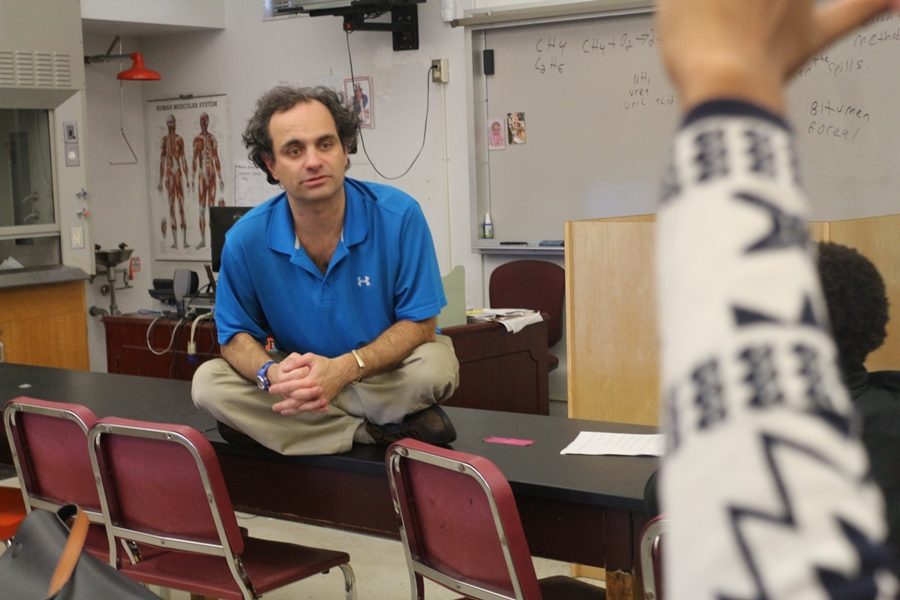Getting into science
Science instructor Dr. Spector says he believes that everybody has a purpose even if it’s only a bad example.
He realized he wanted to teach when he was in high school, he said. “It occurred to me that there could be much better ways of working with students and teaching a class, instead of relying on things like homework, that mostly annoys students.
“And second, when I was doing my thesis and post doc work getting my degree, I realized that I didn’t want to spend my life moving small amounts of water from one tube to another, which is what you do in a lab, or begging for grant money.
“So instead, I figured, I can work with students. And then when I was teaching at the college, part-time, I found that the students were coming in very unprepared. And I started to help them while they’re in high school.”
Spector received his bachelor’s degree from Rider University, and his PhD at Rutgers University.
He’s been working at Inlet Grove High School for 10 years, teaching a variety of Environmental Science classes, including Advanced Placement (AP) Biology, which he said is his personal background.
“Students vary,” he said, “like people. I’ve had everything from students that I would happily recommend to and Ivy League school, to students I’d recommend try 7th grade again, sometimes in the same class at the same time. However teaching AP, more seriously, most of my students are really good kids. Some are academically talented, some struggle. But I know sometimes teachers deal with students that are really difficult, and teaching AP I have it easier. And I know that.”
Some advice he’d give to students about to take his class: “Pray. I don’t give advice before they come into the class. I do recommend that they are on reading level and on grade level for reading. But that’s not an absolute indicator. I’ve had students who were a Level 5, who refuse to do work or can’t do my class. And I’ve had students who are, on paper, a Level 2 who did great. But once they’re in the class, that’s when I give them advice.”
He describes his style of teaching as “Very interactive.” His reasoning:
“There are two extremes to teaching. One is the ‘I have no clue my students are here’ lecturer, the teacher that faces the board, writes notes from one end to the other as they say what they’re writing, and proceeds back to the first board to erase it, (and) keeps going. And the entire class could walk out or drool on the desk and the teacher would not know.
“The other extreme is the ‘I will hide behind my desk and hope I have enough worksheets to keep you busy for 90 minutes’ teacher. That’s no good either.
“What I try to do is talk with the students, that’s why I sit on the desk. It’s closer to a meeting of equals than the stage on the stump.
“Now, in an ideal world I could have the students kind of teach each other or they could go on the Internet and learn the material. But that’s only good for the basic information. And it doesn’t give them the links and allow them to connect the material to the concepts that actually make a difference.
“A bit of a teaching philosophy that I have,” Dr. Spector said, is “Most students go into kindergarten and first grade loving science and they hate it by high school. Because every time they hear about an interesting or cool topic they are then given a list of vocabulary words to memorize and then that’s it. And those students in my class know that’s not the way my class functions.”
Dr. Spector is located in Room 702, for those who would like to stop by and pay him a visit.



Pientka • Mar 9, 2018 at 3:01 pm
Great job!